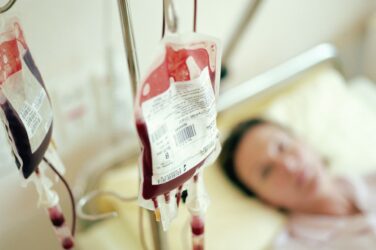Healthcare professionals are quite meticulous when it comes to testing and labelling blood types. This is absolutely necessary, as receiving the wrong blood type can have serious health consequences. It could also prove fatal. Although rare, it is possible that wrong blood type can be given to a patient. This may occur due to various reasons such as human error, wrong detection of blood type, typing errors, bad handwriting, carelessness, etc.
It makes us wonder as to what will happen if we received the wrong blood type. To answer the question, we need to understand blood compatibility types in a bit more detail.

A, B and O antigens – In an individual, the blood cells may have A, B, or O antigens. Based on these, there are four primary blood types – A, B, AB and O. For type A blood, the blood cells will have A antigen. Similarly, there’s B antigens for B blood and A and B antigens for AB blood group. O blood type does not have any A or B antigen.
Immune reaction – If you have A blood type and you receive B blood, your immune system will treat B antigens as foreign bodies and attack them. Similarly, B blood individuals will react in the same manner if they receive A blood.
In case of individuals with AB blood type, they can receive blood from any individual. Individuals with AB blood group are referred to as universal recipient. But in case of donating blood, AB group can donate only to other AB individuals.
In case of people with O blood type, they can donate to everyone. They are referred to as universal doners. However, they can receive blood only from people with O blood type.
What happens if you receive wrong blood type?
Symptoms will start to emerge in just a few minutes of receiving the wrong or incompatible blood type. Some common symptoms reported include breathing difficulties, fever and chills, muscle aches, nausea, blood in urine, pain in chest, abdomen or back, and jaundice.
How to detect wrong blood transfusion?
Your doctor will review the situation based on the symptoms. They can order a blood test to detect destruction of red blood cells. A urine test can reveal presence of hemoglobin, which occurs when blood cells are broken down. While the tests are being performed, your vital signs such as heart rate, blood pressure, temperature and breathing will be monitored.
What is treatment for wrong blood transfusion?
Symptomatic treatment will be provided by the doctor in case wrong blood transfusion is detected. The patient may be moved to an intensive care unit. The primary goal will be to protect your kidneys, low blood pressure and extensive blood clotting. You may be given oxygen and intravenous fluids. Medicines may be given to increase urine output and reduce blood clotting.
If the right treatment is given in a timely manner, people who receive wrong blood type can make a full recovery. However, other factors will come into play such as overall health of patient, existing diseases, age, etc. Your doctor will be the best judge to decide the course of treatment in case wrong blood type is administered.
 Newspatrolling.com News cum Content Syndication Portal Online
Newspatrolling.com News cum Content Syndication Portal Online






